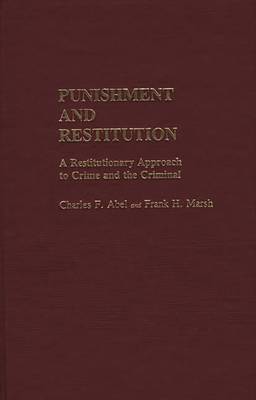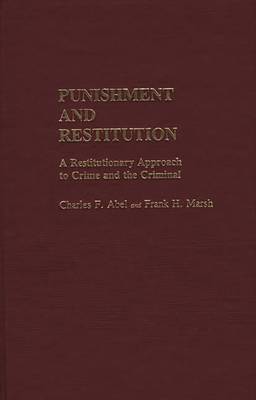
- Afhalen na 1 uur in een winkel met voorraad
- Gratis thuislevering in België vanaf € 30
- Ruim aanbod met 7 miljoen producten
- Afhalen na 1 uur in een winkel met voorraad
- Gratis thuislevering in België vanaf € 30
- Ruim aanbod met 7 miljoen producten
Zoeken
Punishment and Restitution
A Restitutionary Approach to Crime and the Criminal
Charles F Abel, Frank H Marsh
€ 161,45
+ 322 punten
Omschrijving
Charles F. Abel and Frank H. Marsh propose an alternative to the present criminal justice system that they consider workable, efficient, and fair. They remind the reader that the criminal justice system is a political institution created by public demands and values and suggest that we must understand the basic identity of law, politics, and society if we hope to create a workable system. An effective criminal justice system, they argue, must be remedial and faciliatory and attempt to heal both victims and criminals. To accomplish this, the scope of what is legally relevant in criminal law must be broadened, and courts and penal institutions must be made flexible enough to generate social and economic forces that will help correct the effects of crime and the roots of recidivism. By drawing attention to the victim, the authors suggest new approaches and a revised set of values. They conclude that a restitutionary approach is more viable and ethical than our existing system.
Specificaties
Betrokkenen
- Auteur(s):
- Uitgeverij:
Inhoud
- Aantal bladzijden:
- 226
- Taal:
- Engels
- Reeks:
Eigenschappen
- Productcode (EAN):
- 9780313237171
- Verschijningsdatum:
- 21/09/1984
- Uitvoering:
- Hardcover
- Formaat:
- Genaaid
- Afmetingen:
- 140 mm x 216 mm
- Gewicht:
- 435 g

Alleen bij Standaard Boekhandel
+ 322 punten op je klantenkaart van Standaard Boekhandel
Beoordelingen
We publiceren alleen reviews die voldoen aan de voorwaarden voor reviews. Bekijk onze voorwaarden voor reviews.











